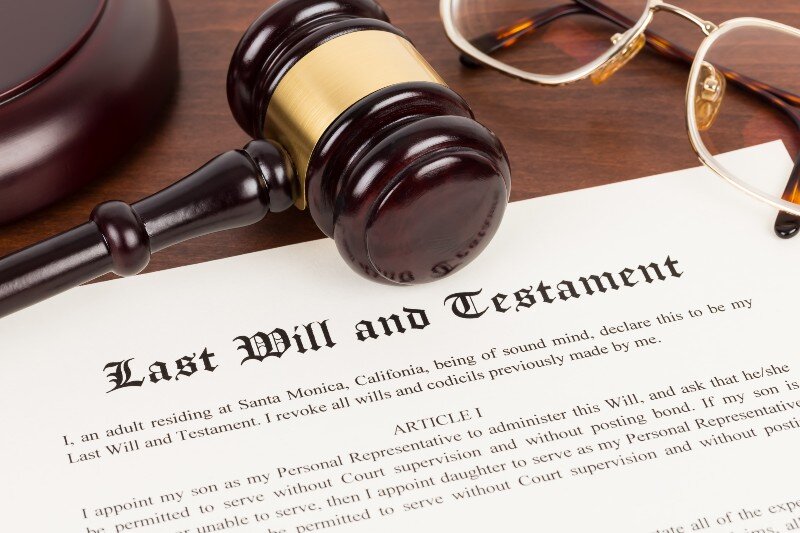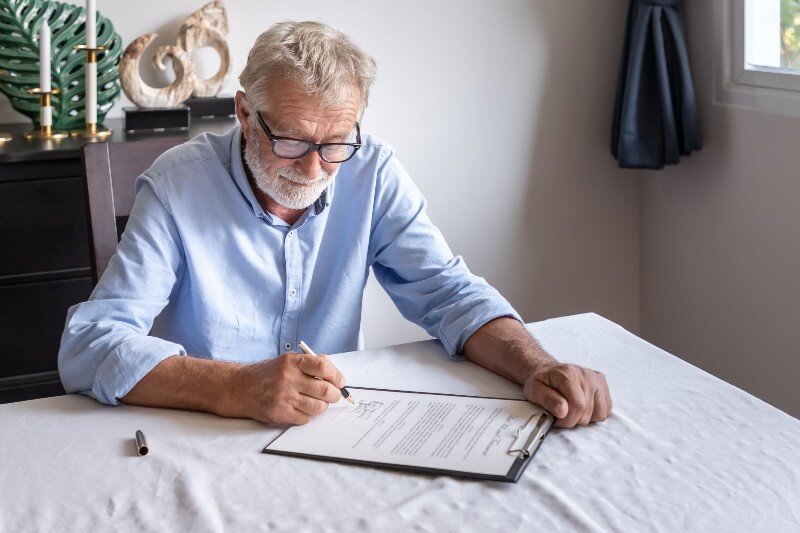
One of the responsibilities of estate planning is to choose an executor for your will. Executors are now called personal representatives. This person will be responsible for protecting the best interests of your beneficiaries. Losing a loved one is difficult for family members, and the estate executor can follow the terms of the will while following the probate process.
The best way to ensure that everyone goes seamlessly after your death is to prioritize estate planning. Writing a will and listing your requests is very important for the executor, and people should make their wills as detailed as possible.
What Is an Executor of a Will?
A personal representative is responsible for the settlement of a decedent’s estate. They can be chosen by the person writing their will, or they can be chosen by the court if there is no will. Typically, a personal representative is a trusted friend or family member. An executor can be someone that is named as a beneficiary.
The responsibilities of a personal representative are laid out by state law. The executor’s fiduciary duty would be simple if the deceased person obtained legal advice before any estate planning.
The executor may be named in a will, but they must be appointed by the probate court to have power of attorney. The probate process can be complicated, so it is best to consult a probate attorney before handling any estate assets. The personal representative must follow all rules and regulations, so the disbursement of the estate is legal.
Probate law will guide you through the payment of the decedent’s outstanding debts and the disbursement of real estate and personal property to each beneficiary of the estate. The will details how the personal assets should be disbursed.
There are several things you should remember when you are acting as an executor. Once you begin dealing with estate assets, you are legally required to finish. As an executor, there are some fees and expenses that you can claim.

Is It Possible for an Executor To Sell the Property to Himself?
An executor can buy estate property, but it is a highly complex process. An executor must follow the self-dealing rule, protecting the beneficiaries from the embezzlement of estate funds. The executor must show that they are not profiting as they sell assets.
An executor would have to consult with a real estate agent to determine the property’s appraised value. When an executor wants to purchase the property, he must pay fair market value, and the beneficiaries must approve any transaction.
The self-dealing rule can become complicated if the executor deals with a family home. Even with signed consent, beneficiaries can void the transaction years later if the executor does not follow the rules.
Can Executor Sell the Property Without the Beneficiaries’ Approval in Minnesota?
An executor cannot sell a house fast in Minnesota (the property) to himself or anyone else without the beneficiaries approval. The personal representative does not own the property; they manage bank accounts and property like a law firm.
Buying the property for a price below fair market value could be embezzlement. The executor’s role is to protect the interest of the beneficiaries, and purchasing property at a discounted price gives the executor an unethical financial gain. Looking for cash home buyers in Minneapolis for the house would also be considered unethical.
If the beneficiaries consent, the personal representative must consult with a real estate agent and determine the home’s appraised value. The executor must pay the home’s fair market value, and the beneficiaries must consent to the sale price.
What an Executor of a Will Can Do
A personal representative is responsible for managing a deceased person’s estate. Depending on the size of the estate, the process and duties can be very complicated. If you are having difficulty with the process at any time, you can consult with a lawyer to help you through the complexities.
A personal representative must complete an inventory of all the assets subject to probate. The executor must complete the list within six months of being appointed or nine months after the person’s death. The inventory must include all assets with their appraised value and the amount of any outstanding debt.
A personal representative manages the estate as it is being disbursed. They must ensure that the property is safe and secure and may have to change locks and maintain all insurance policies. While the executor is managing any estate property, they must take care of it as if it were their own.
An executor must pay any remaining debt before any assets can be disbursed. In some situations, assets might have to be sold to pay outstanding debts.
The personal representative should document every transaction that is done. Record-keeping is essential, and it protects the interests of the executor and the beneficiaries. Some cases require that a Final Account be filed, which records everything that occurred throughout the probate process.
Once the personal representative has paid all the debt, they can disburse the remaining assets to the beneficiaries.
What An Executor of a Will Can’t Do
We choose executors that we trust because they are taking care of the last responsibilities of our lives. Executors must protect the best interests of the beneficiaries, and they cannot do anything that will threaten the beneficiaries’ inheritance, such as selling a property way below market value.
Executors do not have the right to make any financial decisions before the testator has passed away. The death certificate has to be presented to the probate court, and then you can start the process. How long will depend on the probate court system.
You can never change any instructions in a will. They are the decedent’s last wishes, and they must be respected. Once you have disbursed the estate’s assets, the beneficiaries can negotiate the terms of their inheritance without input from the executor.
You cannot stop beneficiaries from contesting the will. Losing a loved one can be an emotional time, and everyone deals with their grief differently. Sometimes, the family will decide to fight about finances and inheritance instead of dealing with their emotions. Whatever the reason, they have the right to contest the will.
How Does an Executor Sell a House?
An executor must follow the rules of selling a house in probate. The first thing to consider is if the decedent left a will. If there are instructions that the house is left to a beneficiary, then the executor must follow these instructions.
When the house has not been left to an heir, the executor must determine if any probate regulations restrict the home’s sale. In Minnesota, a home can be considered a homestead, which exempts it from most creditors.
An executor cannot sell a homestead to pay outstanding debts without the written approval of the beneficiaries. In Minnesota, a homestead is a family home. Specific laws protect the homestead, which comes into effect whether there is a will or not. Under the law, a homestead will automatically pass to the surviving spouse.
When the homestead passes to a surviving spouse, it will be free of claims except for charges for state hospital care and medical assistance benefits.
If the homestead passes to someone other than a remaining spouse, they are responsible for any outstanding payments for funerals, taxes, and debts.
A surviving spouse can remain in the home for the rest of their life, and the remaining interest in the house will go to any surviving children.
In most cases, the will allows the sale of the property to settle outstanding debts. The executor has the right to sell the home when there is no will. They are required to deposit the money from the sale into an estate account, while also considering the other costs of selling a house.
When there is any property sale issue, the executor may be required to ask the court if they can sell. This will involve a court date and sending a notice to all beneficiaries.
Executors must be vigilant when selling the home to themselves or a friend and must avoid a conflict of interest. All beneficiaries must approve the sale, and an appraisal must be done to ensure that the executor pays fair market value for the property.
Selling a deceased person’s home is a little more complicated than your typical home sale. The executor must inventory the home’s contents, and the inventory list must contain the value of all assets.
Some companies specialize in probate sales, which makes the process much easier. They will come in and give a fair offer for the property and the contents. They will provide cash offers.
Final Thoughts
An executor plays an essential role in the final financial obligations of a deceased person. The executor must pay any outstanding debts and ensure that the beneficiaries receive their inheritance. Even if they disagree, they must respect and follow the deceased’s final wishes.
Estate planning is an important responsibility that everyone should consider a priority to ensure that their family and friends receive the inheritance that they plan to leave. It is much easier to settle an estate when there are specific instructions.
If you’re planning to sell your property for any other reason, remember we buy houses Coon Rapids.
